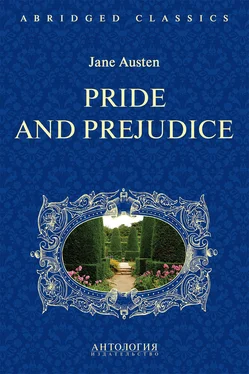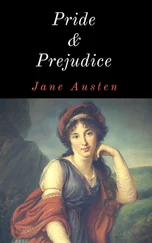When Mr. Collins and his five cousins arrived at Meryton and were shown into their aunt's drawing room, the girls were pleased to hear that Mr. Wickham had accepted their uncle's invitation, and was then in the house.
While they were waiting for the gentlemen to finish their after dinner drinks in the dining room, Mr. Collins was at leisure to look around him and admire, and he was so much struck with the size and furniture of the room, that he compared it with the small summer breakfast room at Rosings. At first, Mrs. Phillips took offence at such comparison, but when she understood from him what Rosings was, and who was its owner, when she had listened to the description of only one of Lady Catherine's drawing rooms, and found that the chimneypiece alone had cost eight hundred pounds, she felt all the force of the compliment. He found in Mrs. Phillips a very attentive listener, whose opinion of his importance increased with what she heard, and who was going to make it known among her neighbors as soon as she could. To the girls, who could not listen to their cousin, and who only wished to have some music and dancing, the interval of waiting seemed very long. It was over at last, however. The gentlemen appeared, and when Mr. Wickham walked into the room, he was the happy man towards whom almost every female eye was turned, and Elizabeth was the happy woman by whom he finally seated himself. He immediately started conversation, and though it was only on its being a wet night, Elizabeth felt that the dullest topic might be made interesting by the skill of the speaker.
With such rivals for the notice of the fair ladies as Mr. Wickham and the officers, Mr. Collins found at intervals a kind listener in Mrs. Phillips only. When the card-tables were placed, she invited him to play at whist.
Mr. Wickham did not play at whist and was gladly received at the other table between Elizabeth and Lydia. At first it seemed that Lydia would monopolize him completely, but as she was extremely fond of lottery tickets, she soon grew too much interested in the game to have attention for anyone. Mr. Wickham was therefore free to talk to Elizabeth, and she was very willing to hear him. Though she chiefly wished to hear the history of his acquaintance with Mr. Darcy, she dared not even mention that gentleman. Her curiosity however, was unexpectedly satisfied. Mr. Wickham began the subject himself. He asked how far Netherfield was from Meryton, and then, with some hesitation, how long Mr. Darcy had been staying there.
«About a month», said Elizabeth. Then, wishing to hear more on the subject, she added, «He is a man of very large property in Derbyshire, I understand».
«Yes», replied Mr. Wickham; «his estate there is an excellent one. A clear ten thousand a year. No other person can give you more certain information about that than myself, for I have been connected with his family from my infancy».
Elizabeth looked a great deal surprised.
«You may be surprised, Miss Bennet, at this statement, after seeing, as you probably did, the very cold manner of our meeting yesterday. Are you much acquainted with Mr. Darcy?»
«As much as I ever wish to be», cried Elizabeth very emotionally. «I have spent four days in the same house with him, and I find him very unpleasant».
«I have known him too long and too well to be a fair judge», said Wickham. «It is impossible for me to be impartial. But I think your strong opinion of him would astonish other people».
«I can say he is not at all liked in Hertfordshire. Everybody is displeased with his pride. You will not find him more favourably spoken of by anyone».
«I'm afraid», said Wickham, after a short pause, «the world is blinded by his fortune and importance, or frightened by his high and proud manners, and sees him only as he chooses to be seen».
«I think him, even on my slight acquaintance, to be an ill-tempered man». Wickham only shook his head. Then he said he wanted to know whether Mr. Darcy was going to stay at Netherfield much longer. Elizabeth didn't know anything about it, but she hoped that Mr. Darcy's being in the neighborhood would not affect Mr. Wickham's plans.
«Oh! No, I won't be driven away by Mr. Darcy. If he doesn't want to see me, he must go. We are not on friendly terms, and it always gives me pain to meet him, but I have no reason for avoiding him except a sense of very great ill-usage, and most painful regrets at his being what he is. His father, Miss Bennet, the late Mr. Darcy, was one of the best men that ever lived, and the truest friend I ever had. This Mr. Darcy's behaviour to myself has been scandalous, but I think I could forgive him anything and everything except his disappointing the hopes of his father and disgracing his memory».
Elizabeth listened to him with growing interest, but thought it indelicate to ask more questions.
Mr. Wickham turned to more general topics, Meryton, the neighborhood, the society.
«It was the prospect of good society», he said, «that was my chief motive to enter the… shire. I knew the regiment to be a most respectable one, and my friend Denny tempted me even more by his description of a gallant society in Meryton. Society is necessary to me. I have been a disappointed man, and I don't like solitude. I must have work and society. A military life was not my aim in life. I was brought up for the church, and now I would have possessed a very good living if that had pleased the gentleman we were speaking of just now».
«Indeed!»
«Yes, the late Mr. Darcy, in his will, left me the best vacant living as his gift. He was my godfather, and loved me a lot. He was so kind to me. He wanted to provide enough for me, and thought he had done it; but when the living got vacant, it was given elsewhere».
«Good heavens!» cried Elizabeth. «How could it happen that his will was ignored? Why didn't you ask for legal help?»
«There was informality in the terms of the will which didn't give me any hope to get help from law. Mr. Darcy chose to treat it as just a conditional recommendation, and to say that I had lost all privilege to it by extravagance, imprudence, in short anything or nothing. The living became vacant two years ago and was given to another man. I haven't done anything impertinent or imprudent to deserve to lose it. Perhaps, having a warm, unguarded temper, I had spoken my opinion of him, and to him, too freely. I can remember nothing worse. But the fact is, that we are very different sort of men, and that he hates me».
«This is quite shocking! He deserves to be publicly disgraced».
«Some time or other he will be, but I cannot forget his father, so I can never expose him».
Elizabeth thought him to be a very honourable man and even handsomer than ever.
«But what», asked she, after a pause, «can have been his reason for such cruelty?»
«A deep dislike of me born by jealousy. His father's unusual affection for me irritated him, I think, very early in life. He could not stand the sort of preference which was often given me».
Elizabeth was shocked by such injustice, such inhumanity on the part of Mr. Darcy.
After a few minutes' silence she said, «I remember his saying one day, at Netherfield, that he is consistent in his resentments, has an unforgiving temper. His character must be dreadful».
Wickham said he couldn't be just in his judgment of Darcy's character.
Elizabeth was again deep in thought, and after a time exclaimed, «To treat like this his companion from childhood, connected together in the closest manner!»
«The greatest part of our youth was passed together. We lived in the same house, shared the same amusements, were objects of the same parental care. My father devoted all his time to the care of the Pemberley property. He was most deeply respected by Mr. Darcy, a most intimate, trustworthy friend. When, immediately before my father's death, Mr. Darcy gave him a voluntary promise of providing for me, I am convinced that he felt it to be as much a debt of gratitude to him, as of his affection to myself».
Читать дальше












